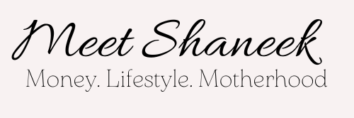
Sticking to a budget goes far beyond just writing it down on paper. Sometimes you try so hard but somehow you still end up overspending. Why does this keep happening and which payment type can help you stick to a budget?
Even though overspending has a lot to do with bad money habits, poor money management, buying unnecessary items, etc. It also has a lot to do with payment type.
According to research via a survey, the amount consumers spend each week (not counting bills) averages $340, or $143 more than the $197 which was budgeted.
What Is The Best Way To Keep A Budget
When it comes to your budget, you should be intentional about the various factors that play a part in your spending.
Therefore, I personally believe the best way to keep a budget is based on multiple factors – not just one single thing (my opinion).
Importantly, overspending can negatively impact your financial goals. Payment type should be considered as one of the ways to stick to your budget.
Payment by cash to stick to a budget
Cash is a good payment type when you want to create and stick to a budget. In your wallet, you have an amount of money that cannot go beyond its spending limit.
For instance, If your grocery bill totals $100 and that’s all you have in your wallet, this payment type restricts you from adding more items and that’s a good thing as you’ll stick to your budget.
Pros
- You can decide on the specific amount of cash to bring with you in order to prevent overspending.
- It gives you some amount of control as you cannot spend more than you have in your pocket.
- When you make payments, you’ll get change or loose coins to stash away in your piggy bank, encouraging you to save money.
Cons
- It may not be a good idea to walk around with a lump sum of cash as it might get lost or stolen.
- It’s more difficult/hectic to keep track of spending as you would have to write down purchases or keep lots of receipts.
- You may experience ‘pain of paying’, which is the emotional distress when you make monetary purchases.
Related Content:
14 ways you’re wasting money without thinking
9 Things I stopped buying to save money
Debit card payment
Like cash, debit cards make a good payment type if you really want to stick to your budget. I love using debit cards, even more than cash. I withdraw only when I know I need it. I’ll tell you why in the pros below:
Pros
- It’s hassle-free and easier to walk around with than cash.
- You tap and go for purchases, making it quick and convenient.
- You’re able to track your transactions by just signing into your online banking.
- It’s a payment type that brings some amount of restriction as well because you cannot spend more than what you have in your checking account (unless it’s an overdraft which you can choose to use only what’s in the account because you’re trying to stick to a budget).
Cons
- You might be subject to overdraft fees as mentioned above and that can be a pain. This article shows what different banks charge for overdraft fees.
- Debit card can be lost or stolen
- Point of sale machine(s) might go down upon purchase
Pay with credit card
My thing is, credit cards are the culprit. If you are trying to stick to your budget and avoid overspending, then a credit card wouldn’t be the best payment type to use.
A credit card might seem to be a convenient way to make purchases, but you’re borrowing money from the card company and repaying with interest. At least with a debit card, you’re using your own money.
Pros
- Convenient in making purchases.
- You are better protected against fraud which makes it the most secure form of payment. Refer to this article.
- Builds credit history
Cons
- Interest is accumulated.
- Poor spending habits might drive you into debt – not for someone striving to become debt-free
- Addiction to buying unnecessary items due to ‘convenience’ using credit cards
- The inability to repay can cause credit issues.
Conclusion
All three payment types have their positives and negatives.
So, what is the best type of payment? Debit cards or Cash – whichever works for you. As mentioned, I prefer debit cards because it suits me. Take note of your spending habits, the pros and cons, the way you manage money, and decide which will work for you.
Read next: How to achieve financial freedom now
